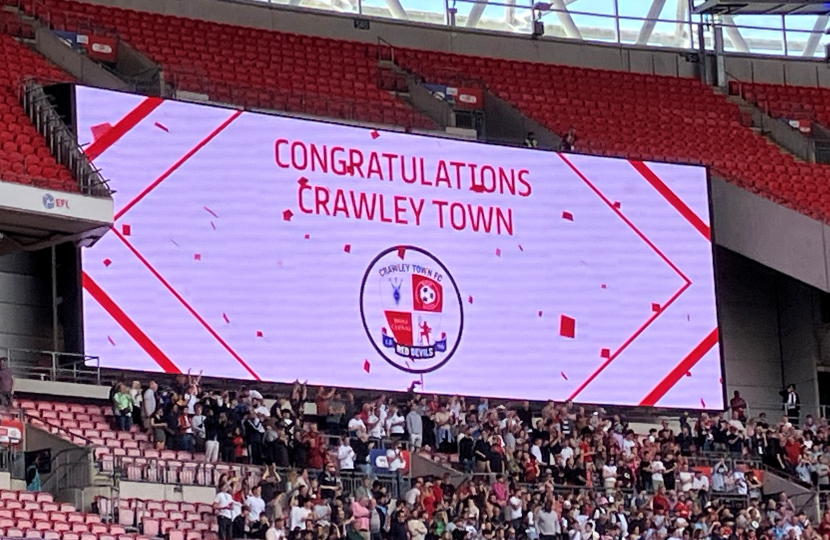
Congratulations to Scott Lindsey and his Crawley Town team for winning the League Two Play-Off Final at Wembley Stadium. Everyone at the club should be proud of their efforts. The team’s victory in its first appearance at the national stadium saw the side secure promotion to League One, in front of an incredible 17,000 Crawley fans at Wembley.
Until last Sunday, Crawley Town were one of only two clubs out of the entire 92 in the Premier League and Football League who had never played at either the old or new Wembley Stadium.
It is an incredible achievement that this milestone has now been reached. With more than 17,000 fans supporting Crawley Town at Wembley, this marks the highest allocation of fans backing the club at one game since its founding in 1896.
A good number of these thousands will be season-ticket holders and long-term fans who had waited for this day for years if not decades, after following their team at the Broadfield and Town Mead before that, and away grounds up and down the country in loyal support of the club.
If anyone ever doubted the importance of fans to football then just think back to the games played during the Covid-19 pandemic when the restrictions of the time meant matches were played behind closed doors.
With this salience in mind I welcome the Football Governance Bill to secure the sustainability and resilience of English football in the interest of fans and local communities.
Since I last wrote about the Bill on these pages it has passed second reading in the House of Commons. Over recent days I have been monitoring this legislation as it starts its committee stage.
The Sports Minister, Stuart Andrew, was right to tell the committee last week that throughout the history of the game, football clubs have been an integral part of their communities, with club history often intertwined with the story of the local area.
The Bill will introduce an Independent Football Regulator – independent of both football authorities and Government – to be enshrined in law and ensure fans have a greater voice in the running of their clubs.
Applying to the top five tiers of men’s football in England, the Regulator will ensure stronger tests for new owners and directors to stop clubs falling into the wrong hands. It will seek to uphold club heritage, often something which has remained a constant for generations of families, such as club names, badges and kit colours.
The Football Governance Bill is scheduled to continue its committee stage in Parliament this week and I look forward to supporting its progress through the House of Commons.
Henry Smith MP

